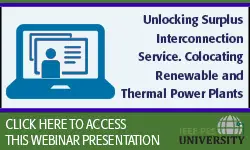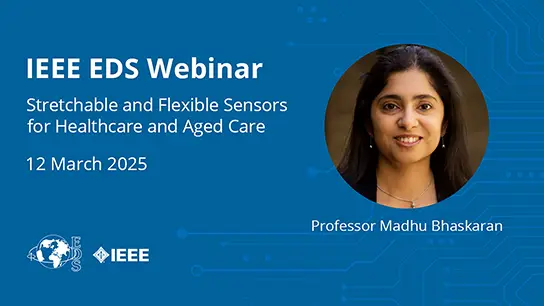Quantum Computer CMOS System-on-Chip Video
Reza Nikandish,Robert Bogdan Staszewski
-
Members: FreeSSCS
IEEE Members: $8.00
Non-members: $15.00Length: 01:15:00
20 Jul 2021
Abstract:
Quantum computing is experiencing the transition from a scientific to an engineering field with the promise to revolutionize an extensive range of applications demanding high-performance computing. Several implementation technologies have been pursued for quantum computing systems. Quantum computing based on semiconductors, specifically using current nanoscale CMOS technologies, is promising as it provides potential for the integration of large qubit arrays with their control and readout circuits on a single chip.
In this webinar, we explore emerging approaches and challenges in the implementation of quantum computers using CMOS technologies. We provide a future perspective of the field toward realization of a quantum computer system-on-chip (SoC). This approach allows implementation of large-scale systems benefiting from features of CMOS processes, e.g., high-density qubit arrays, digital processing, quantum error correction, and in-memory processing. Making this vison a reality, however, entails dealing with numerous new challenges, including the lack of precise cryogenic models for CMOS transistors and passive devices, process variations, effects of control and readout circuits on performance of qubits, qubits crosstalk and the need for hybrid quantum-classic electronic circuit simulators. These prospects and challenges open up exciting research opportunities in the near future.
Speaker Bios:
Reza Nikandish (Senior Member, IEEE) received the Ph.D. degree in Electrical Engineering from the Sharif University of Technology, Tehran, Iran, in 2014. He is currently an Assistant Professor with the University College Dublin, Ireland. His current research interests include RF and mm-wave integrated circuits, CMOS quantum computing, and energy-efficient AI hardware. He was a recipient of the Marie Curie Post-Doctoral Fellowship from the European Union’s Horizon 2020 Research and Innovation Program from 2017 to 2020, a recipient of the Iran’s National Elites Foundation Fellowship from 2010 to 2014 and the Second-Place Award Winner of the National Electrical Engineering Olympiad in 2004. He is a member of the IEEE Solid-State Circuits and Microwave Theory and Techniques Societies.
Robert Bogdan Staszewski (Fellow, IEEE) was born in Bialystok, Poland. He received the B.Sc. (summa cum laude), M.Sc., and Ph.D. degrees in electrical engineering from the University of Texas at Dallas, Richardson, TX, USA, in 1991, 1992, and 2002, respectively. From 1991 to 1995, he was with Alcatel Network Systems in Richardson, TX, USA, involved in SONET cross-connect systems for fiber optics communications. He joined Texas Instruments Incorporated, Dallas, TX, USA, in 1995 where he was elected Distinguished Member of Technical Staff (limited to 2% of technical staff). From 1995 to 1999, he was engaged in advanced CMOS read channel development for hard disk drives. In 1999, he co-started the Digital RF Processor (DRP) group within Texas Instruments with a mission to invent new digitally intensive approaches to traditional RF functions for integrated radios in deeply-scaled CMOS technology. He was appointed as a CTO of the DRP group from 2007 to 2009. In 2009, he joined the Delft University of Technology, Delft, The Netherlands, where currently he holds a guest appointment of Full Professor (Antoni van Leeuwenhoek Hoogleraar). Since 2014, he has been a Full Professor with the University College Dublin (UCD), Dublin, Ireland. He is also a Co-Founder of a startup company, Equal1 Labs, with design centers located in Silicon Valley and Dublin, Ireland, aiming to produce single-chip CMOS quantum computers. He has authored or co-authored five books, eight book chapters, 120 journal and 200 conference publications, and holds 190 issued US patents. His research interests include nanoscale CMOS architectures and circuits for frequency synthesizers, transmitters and receivers as well as quantum computers.
Prof. Staszewski was a recipient of the 2012 IEEE Circuits and Systems Industrial Pioneer Award. He was a TPC Chair of the 2019 IEEE ESSCIRC Conference, Krakow, Poland. In May 2019, he received the title of Professor from the President of the Republic of Poland.
Quantum computing is experiencing the transition from a scientific to an engineering field with the promise to revolutionize an extensive range of applications demanding high-performance computing. Several implementation technologies have been pursued for quantum computing systems. Quantum computing based on semiconductors, specifically using current nanoscale CMOS technologies, is promising as it provides potential for the integration of large qubit arrays with their control and readout circuits on a single chip.
In this webinar, we explore emerging approaches and challenges in the implementation of quantum computers using CMOS technologies. We provide a future perspective of the field toward realization of a quantum computer system-on-chip (SoC). This approach allows implementation of large-scale systems benefiting from features of CMOS processes, e.g., high-density qubit arrays, digital processing, quantum error correction, and in-memory processing. Making this vison a reality, however, entails dealing with numerous new challenges, including the lack of precise cryogenic models for CMOS transistors and passive devices, process variations, effects of control and readout circuits on performance of qubits, qubits crosstalk and the need for hybrid quantum-classic electronic circuit simulators. These prospects and challenges open up exciting research opportunities in the near future.
Speaker Bios:
Reza Nikandish (Senior Member, IEEE) received the Ph.D. degree in Electrical Engineering from the Sharif University of Technology, Tehran, Iran, in 2014. He is currently an Assistant Professor with the University College Dublin, Ireland. His current research interests include RF and mm-wave integrated circuits, CMOS quantum computing, and energy-efficient AI hardware. He was a recipient of the Marie Curie Post-Doctoral Fellowship from the European Union’s Horizon 2020 Research and Innovation Program from 2017 to 2020, a recipient of the Iran’s National Elites Foundation Fellowship from 2010 to 2014 and the Second-Place Award Winner of the National Electrical Engineering Olympiad in 2004. He is a member of the IEEE Solid-State Circuits and Microwave Theory and Techniques Societies.
Robert Bogdan Staszewski (Fellow, IEEE) was born in Bialystok, Poland. He received the B.Sc. (summa cum laude), M.Sc., and Ph.D. degrees in electrical engineering from the University of Texas at Dallas, Richardson, TX, USA, in 1991, 1992, and 2002, respectively. From 1991 to 1995, he was with Alcatel Network Systems in Richardson, TX, USA, involved in SONET cross-connect systems for fiber optics communications. He joined Texas Instruments Incorporated, Dallas, TX, USA, in 1995 where he was elected Distinguished Member of Technical Staff (limited to 2% of technical staff). From 1995 to 1999, he was engaged in advanced CMOS read channel development for hard disk drives. In 1999, he co-started the Digital RF Processor (DRP) group within Texas Instruments with a mission to invent new digitally intensive approaches to traditional RF functions for integrated radios in deeply-scaled CMOS technology. He was appointed as a CTO of the DRP group from 2007 to 2009. In 2009, he joined the Delft University of Technology, Delft, The Netherlands, where currently he holds a guest appointment of Full Professor (Antoni van Leeuwenhoek Hoogleraar). Since 2014, he has been a Full Professor with the University College Dublin (UCD), Dublin, Ireland. He is also a Co-Founder of a startup company, Equal1 Labs, with design centers located in Silicon Valley and Dublin, Ireland, aiming to produce single-chip CMOS quantum computers. He has authored or co-authored five books, eight book chapters, 120 journal and 200 conference publications, and holds 190 issued US patents. His research interests include nanoscale CMOS architectures and circuits for frequency synthesizers, transmitters and receivers as well as quantum computers.
Prof. Staszewski was a recipient of the 2012 IEEE Circuits and Systems Industrial Pioneer Award. He was a TPC Chair of the 2019 IEEE ESSCIRC Conference, Krakow, Poland. In May 2019, he received the title of Professor from the President of the Republic of Poland.
Primary Committee:
SSCS


